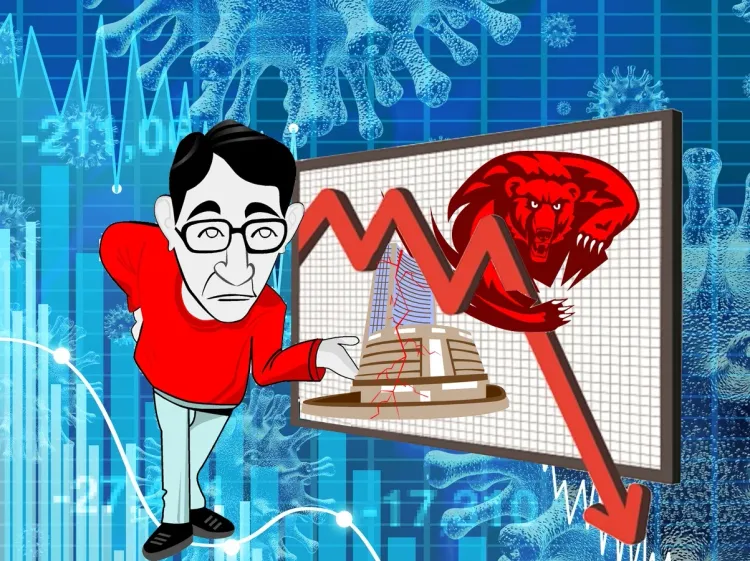Why Did the Stock Market Decline Over 1% After a Record Rally?

Synopsis
Key Takeaways
- The Indian stock market declined due to profit booking.
- Geopolitical tensions influenced investor sentiment.
- Broader markets showed some resilience despite declines.
- Certain sectors managed to gain while others were adversely affected.
- Investors are advised to look for opportunities in strong sectors.
Mumbai, May 13 (NationPress) The Indian stock markets concluded on a negative note on Tuesday as investors engaged in profit-taking following a significant rally on Monday. The sell-off was also influenced by potential implications from the ongoing US-China trade discussions.
A day after experiencing their strongest session in over four years, the benchmark indices saw declines. The Sensex decreased by 1,281.68 points, equating to 1.5 percent, to finish at 81,148.22.
In a similar fashion, the Nifty fell by 346.35 points, or 1.39 percent, closing at 24,578.35.
During the previous session, the markets surged nearly 4 percent as fears regarding conflict between India and Pakistan subsided. However, this spike was primarily driven by short covering, leading many retail investors to secure profits on Tuesday.
Analysts noted that the markets took a pause after a remarkable start to the week.
Despite the downturn in the headline indices, the broader markets managed to remain in positive territory.
The BSE Midcap index saw a slight increase of 0.17 percent, while the BSE Smallcap index climbed 0.99 percent — indicating some resilience in smaller and mid-sized stocks.
On a sector basis, most major indices closed lower. Nifty Auto, Financial Services, FMCG, and IT stocks were among the hardest hit, each falling over 1 percent.
Other sectors, including Nifty Bank, Metal, Oil and Gas, Realty, and Consumer Durables, also recorded losses of up to 1 percent.
Conversely, Nifty PSU Bank, Media, Pharma, and Healthcare indices experienced gains of up to 1.66 percent.
Among the Sensex stocks, Infosys emerged as the largest loser, declining by 3.57 percent, followed by Eternal (-3.38 percent), Power Grid (-3.4 percent), HCL Tech (-2.94 percent), and TCS (-2.88 percent).
On a positive note, Sun Pharma, Adani Ports, Bajaj Finance, State Bank of India, and Tech Mahindra witnessed gains of up to 1 percent.
The India VIX, a measure of market volatility, decreased slightly by 1.05 percent to 18.20.
“Geopolitical tensions remained a focal point as market participants observed the fragile ceasefire between India and Pakistan, contributing to a cautious sentiment,” remarked Sundar Kewat of Ashika Institutional Equity.
Ajit Mishra of Religare Broking Ltd commented that the decline in the index reflects caution among participants despite easing geopolitical tensions and stable global indicators.
“However, we anticipate the overall market tone to remain optimistic, given the notable support in the 24,400–24,600 range. Attention should be directed towards identifying key sectors and themes demonstrating relative strength, and using intermediate pauses to acquire quality stocks,” he stated.










